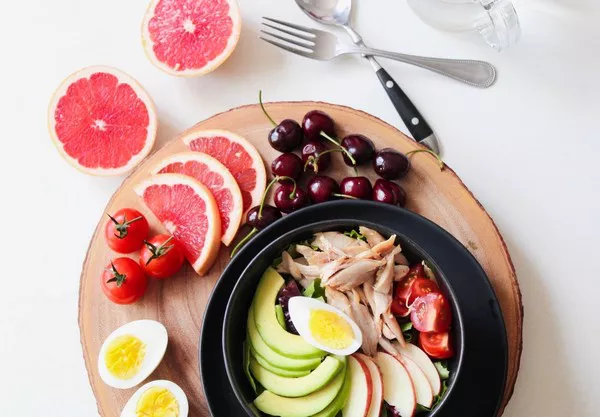Ramadan is a holy month observed by millions of Muslims worldwide, marked by fasting from sunrise to sunset. While this period is spiritually significant, it also presents an opportunity for individuals seeking to manage their weight in a healthy way. With the right approach, you can harness the benefits of fasting while still nourishing your body and achieving weight loss goals. In this article, we will explore what to eat during Ramadan to promote weight loss, while also complying with the principles of good nutrition and maintaining overall health.
Suhoor: The Pre-Dawn Meal
Suhoor is the pre-dawn meal consumed before the start of the fast, and it plays a crucial role in providing sustained energy throughout the day. The key is to choose nutrient-dense foods that keep you satiated and nourished until sunset. Here are some ideal suhoor options for weight loss:
Complex Carbohydrates: Opt for whole grains such as oats, quinoa, or brown rice to provide slow-releasing energy and promote a feeling of fullness.
Protein Sources: Include lean proteins like eggs, low-fat dairy products, or plant-based options like lentils and chickpeas, as they help maintain muscle mass and control appetite.
Healthy Fats: Incorporate sources of healthy fats, like avocados, nuts, and seeds, which support overall health and provide satiety.
Hydration: Don’t forget to drink plenty of water during suhoor to stay hydrated throughout the fasting hours.
Iftar: Breaking the Fast
Breaking the fast with a nutritious and balanced meal is equally important. Avoid the temptation to overindulge in high-calorie and sugary foods during iftar. Instead, opt for these weight-loss-friendly options:
Dates and Water: Begin by breaking your fast with dates and water, following the tradition of Prophet Muhammad. Dates provide a quick source of energy, while water helps rehydrate your body.
Balanced Meal: Create a balanced plate that includes vegetables, lean proteins, and whole grains. This combination ensures that you get essential nutrients without excess calories.
Homemade vs. Processed Foods: Opt for homemade dishes over processed or fried foods, as they are often healthier and contain fewer additives and preservatives.
Avoid Overeating and Mindful Eating
During Ramadan, there can be a tendency to overeat, especially at iftar gatherings and family meals. Mindful eating is essential for weight loss and maintaining a healthy relationship with food. Here are some tips for practicing mindful eating:
Eat Slowly: Chew your food thoroughly and savor each bite. This gives your brain time to recognize that you’re full, preventing overeating.
Portion Control: Be mindful of portion sizes and avoid piling your plate with excessive amounts of food.
Avoid Emotional Eating: Recognize emotional triggers that may lead to overeating and find alternative ways to cope with stress or boredom.
Snacking Wisely
During Ramadan, it’s common to have a small meal known as “suhoor” before dawn and another meal called “iftar” to break the fast at sunset. In between these meals, some people may feel the need to snack. Choose healthy snacks that won’t sabotage your weight loss efforts:
Fresh Fruits: Opt for fresh fruits that are rich in vitamins, minerals, and fiber. Fruits like apples, oranges, and berries are excellent choices.
Nuts and Seeds: Snack on a handful of unsalted nuts and seeds, such as almonds, walnuts, chia seeds, or pumpkin seeds, as they provide healthy fats and protein.
Greek Yogurt: Greek yogurt is a protein-rich and filling snack option. Choose plain, unsweetened yogurt and add fresh fruits or a drizzle of honey for sweetness.
Hydration: Sometimes, our bodies mistake thirst for hunger. Stay hydrated by drinking water throughout the evening to avoid unnecessary snacking.
The Importance of Exercise
While fasting during Ramadan, some individuals may be concerned about their ability to exercise. However, light to moderate physical activity is safe and can even support weight loss. Engaging in activities such as walking, yoga, or stretching can help maintain muscle mass and keep your metabolism active.
Staying Hydrated
Proper hydration is essential during Ramadan, especially when the fasting hours are longer. Dehydration can lead to fatigue, headaches, and decreased cognitive function. Here are some tips for staying hydrated:
Water: Drink plenty of water between iftar and suhoor to stay hydrated throughout the day.
Avoid Caffeinated and Sugary Drinks: Limit your intake of caffeinated and sugary beverages, as they can lead to dehydration and provide empty calories.
Conclusion
In conclusion, Ramadan can be an excellent opportunity to focus on healthy eating habits and achieve weight loss goals in a mindful and balanced manner. By making wise choices during suhoor, iftar, and snack times, and incorporating light exercise, you can nourish your body while observing this holy month.Wishing you a blessed and healthy Ramadan!


